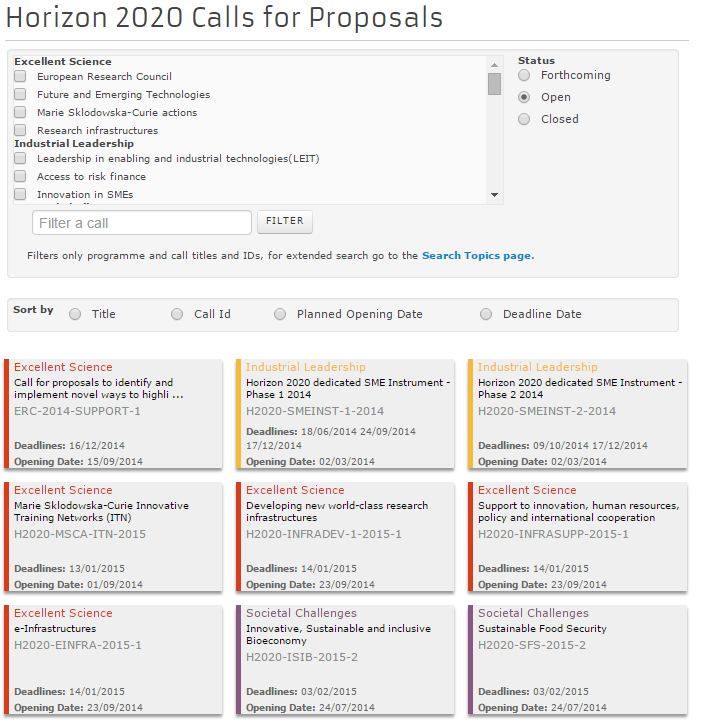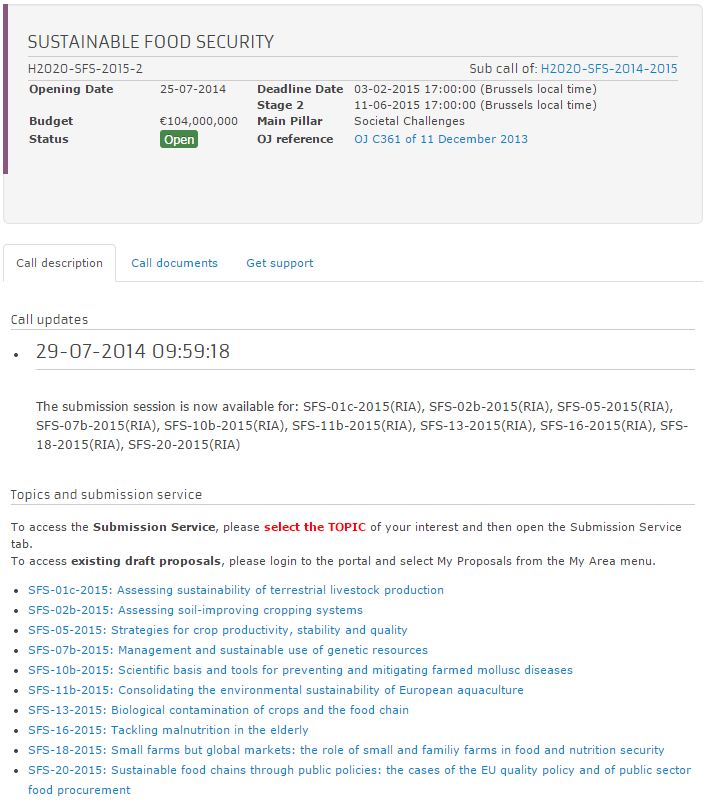The European Commission intends to introduce three major funding streams into Horizon 2020 and ditch six others, a draft plan obtained by Research Europe says.
The new focus areas for the 2016 and 2017 work programmes will be the Internet of Things, automated road transport and an approach to sustainable industrial production called “the circular economy”, according to the draft plan.
Work programmes for 2014-15 were built around 12 priorities, but only six of these—digital security, smart cities, energy efficiency, low-carbon energy, blue growth and food security—will remain for the next phase of the programme.
 The six surviving priorities and three new ones will form the backbone for calls for proposals in pillars two and three, covering industrial leadership and the societal challenges. The document also promises a stronger role for the social sciences in 2016 and 2017.
The six surviving priorities and three new ones will form the backbone for calls for proposals in pillars two and three, covering industrial leadership and the societal challenges. The document also promises a stronger role for the social sciences in 2016 and 2017.
The six areas to be downgraded are personalised healthcare, waste, water, mobility, disaster protection and tackling the financial crisis. They will no longer be considered as overarching focus areas, according to the plan. Instead, they are likely to be tackled through individual Horizon 2020 calls.
The 12-page draft has been developed on the basis of recommendations from about 20 advisory groups, as well as public consultations. It is still subject to alteration, but has been passed to member states’ representatives on the Horizon 2020 programme committee.
According to the document, the selected nine focus areas offer the best chance for Horizon 2020 to support EU policy goals, including economic growth and employment, the development of a digital single market and improved energy supply. They will also help the EU to raise its manufacturing success by developing emerging industries such as cyber-physical systems and 3-D printing, it says.
On the social sciences and humanities, the document says the Commission will include the disciplines as an “integral part in the conceptual design” of calls this time round. This follows a recommendation from the European Forum on Forward Looking Activities, or Effla, that non-technical solutions to problems should be given more emphasis. “A lot of the societal challenges are driven heavily by human behaviour, and that didn’t seem to be coming out sufficiently [in the last work programmes],” says advisory member Luke Georghiou, the vice-president for research and innovation at the University of Manchester.
The document also indicates that 2016-17 work programmes will more actively seek non-EU participation, as was recommended by member states. “Many topics will be flagged as being specifically relevant for international cooperation,” the document says, and specific funding will be offered “to ensure the right international partners are attracted”.
Other areas considered more important than before include public procurement to fund commercial R&D, the use of challenge prizes to solve particular problems, and gender studies. Measures will be taken to raise the participation of female researchers, it says.
The document is accompanied by 17 annexes setting out plans for each of the societal challenges and the enabling technologies for 2016-17, as well as the Future and Emerging Technologies, Marie Skłodowska-Curie Actions and research infrastructures from the first pillar. These documents are the basis for the work programmes, due to be finalised in the second half of 2015.
But despite acknowledging that Horizon 2020 has more flexibility than Framework 7, Georghiou says the Commission could still do more to update its priorities, even after the work programmes are under way. “It’s an in-built problem, if you set out a programme that has a several-year horizon and is focused on societal challenges, that the nature of those challenges will evolve as the programme proceeds,” he says. “You can’t start with an initial list of topics and expect that to be unchanged, so you have to keep updating and revising it.”
BU subscribe to Research Europe, which is part of the many resources provided by ResearchResearch. To find out more and to add Research Europe to your personal alerts, please see the recent post on Research Professional.


























 FHSS academics teaching in Nepal
FHSS academics teaching in Nepal New weight change BU paper
New weight change BU paper One week to go! | The 16th Annual Postgraduate Research Conference
One week to go! | The 16th Annual Postgraduate Research Conference Geography and Environmental Studies academics – would you like to get more involved in preparing our next REF submission?
Geography and Environmental Studies academics – would you like to get more involved in preparing our next REF submission? Congratulations to three former BU staff
Congratulations to three former BU staff MSCA Staff Exchanges 2024 Call – internal deadline
MSCA Staff Exchanges 2024 Call – internal deadline Applications are now open for 2025 ESRC Postdoctoral Fellowships!
Applications are now open for 2025 ESRC Postdoctoral Fellowships! Horizon Europe – ERC CoG and MSCA SE webinars
Horizon Europe – ERC CoG and MSCA SE webinars MaGMap: Mass Grave Mapping
MaGMap: Mass Grave Mapping ERC grants – series of webinars
ERC grants – series of webinars